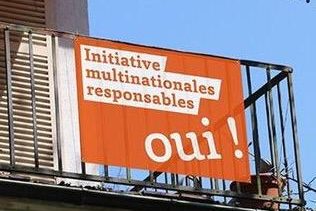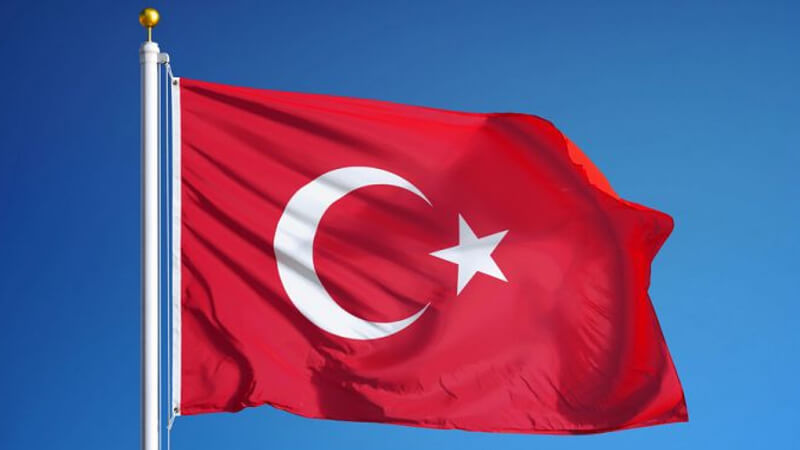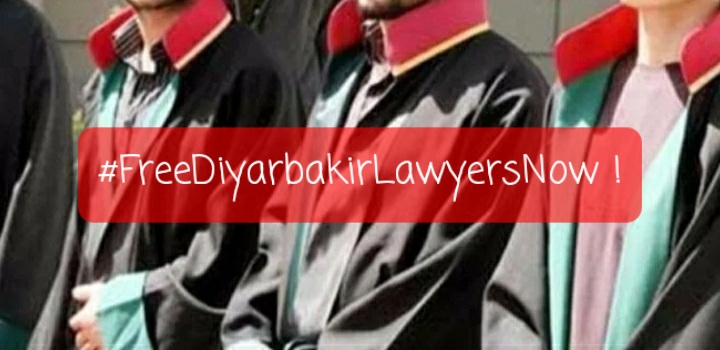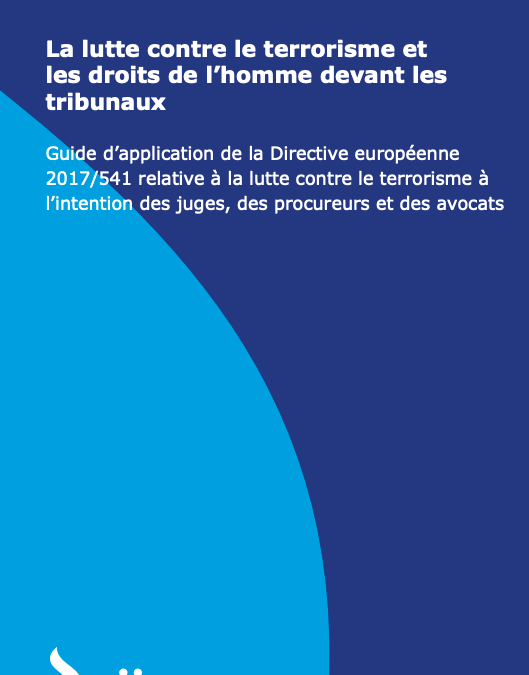
Nov 29, 2020 | News
The ICJ and its Swiss section (ICJ-CH) regret the results of the vote yesterday in Switzerland rejecting the popular initiative for responsible businesses. While the majority of the popular vote approved the initiative, there was no majority of voters in a majority of Cantons.
Under the Swiss constitution, to be approved, such initiative amending the constitution needs the majority of both the popular vote in Switzerland and in a majority of Cantons part of the Swiss Confederation.
“The strong support gathered by this initiative, expressed in the majority of the popular vote, is encouraging, and a strong message that the Federal Parliament and the Federal Council must take into account in the process of the implementation of the legislative counter-proposal and in further legislation,” said Marco Sassòli, ICJ commissioner.
A counter-proposal prepared by the Federal Council is now approved by default. This counter-proposal foresees due diligence obligations for some sectors and reporting obligations, but no specific legal liability.
The proposed initiative would have required multinationals based in Switzerland to respect human rights also abroad, and to carry out human rights due diligence to identify and prevent potential human rights abuses.
It would also have clarified the multinational’s legal responsibility for violations of internationally recognized human rights and environmental norms by enterprises that it controls and operate abroad.

Nov 23, 2020 | Agendas, Events, News
The International Commission of Jurists and the Human Rights Joint Platform (IHOP) invite you to a Zoom workshop where Turkish and international experts will discuss the plight of violence against women in Turkey in light of the Council of Europe’s Istanbul Convention.
To participate, please register by writing an email to ihop@ihop.org.tr (the Human Rights Joint Platform).
Join our great panel of speakers:
– Dame Silvia Cartwright, ICJ Commissioner, former Governor-General and High Court judge of New Zealand, former CEDAW member
– Prof. Dr. Feride Acar, former Member of CEDAW, former Chair of GREVIO
– Zuzanna Warso, Lawyer, Helsinki Foundation for Human Rights of Poland
– Hülya Gülbahar, Women rights activist, Lawyer
– Nebahat Akkoç, Chair of KAMER Foundation
– Yasemin ÖZ, Lawyer, Kaos GL
– Feray Salman, General Coordinator of the Human Rights Joint Platform (IHOP)
– Massimo Frigo, ICJ Senior Legal Adviser
IHOPICJ-ZoomConference-WomenAccess2Justice-Agenda-2020-ENG (download the agenda in English)
IHOPICJ-ZoomConference-WomenAccess2Justice-Agenda-2020-TUR (download the agenda in Turkish)
The event is part of the REACT project: implemented jointly by ICJ and IHOP, this project seeks to support the role of civil society actors in turkey in ensuring effective access to justice for the protection of human rights. This project is funded by the European Union. The views expressed in the event do not necessarily reflect the opinion of the EU.

Nov 20, 2020 | News
The ICJ expressed today its deep concern at the arrest of some 26 lawyers and the investigation of around 100, including lawyers active in the defence of human rights, in South East Turkey.
The arrests and investigations are on charges of “establishing organizations in favour of an illegal organisation”, an offence often used to arrest human rights defenders in Turkey.
Around 26 lawyers were arrested this morning, 20 November, at around 5 a.m. and taken to the Anti-Terror Branch of the Police in Diyarbakır in South East Turkey as part of an investigation against the Democratic Society Congress. The ICJ understands that around 100 lawyers are concerned by this investigation that also concerns the Lawyers Association for Freedom (ÖHD).
“We are concerned that these lawyers have been arrested under vague charges that are often used in Turkey to target human rights defenders ,” said Roisin Pillay, Director of the ICJ Europe and Central Asia Programme,
“Unless law enforcement officers and prosecutors promptly substantiate such charges with adequate evidence, as well as demonstrating valid grounds for their detention, the lawyers must be released immediately.”
The ICJ will follow the case closely to ascertain whether international law and standards are respected in any action against the lawyers concerned.
“Lawyers are often subject to bogus charges in Turkey to curb their work, including in defence of human rights, and the exercise of their freedom of expression,” added Roisin Pillay.
The ICJ stressed that lawyers should never be subject to arrest for the legitimate exercise or defence of human rights or for the exercise of their professional functions. In the event that any of the lawyers arrested on 20 November are subject to charges for cognizable crimes consistent with Turkish and international law, they must be brought promptly before a court to further consider whether specific grounds exist to justify their continued detention. If charged, they must be ensured the right of fair trial by an independent and impartial court.
Background
It is understood from documents shared by unofficial sources that lawyers’ houses in Diyarbakır have been raided as a part of an ongoing investigation conducted against the Democratic Society Congress (“DSC”). DSC was established in 2007 and continued its work at the premises of Diyarbakır municipality in between 2011-2014. Its members included deputies, mayors, and councillors. The Speaker of the Parliament of the time, officially invited the DSC to the meetings of the Constitutional Reconciliation Commission in 2012. However, following the state of emergency declared in July 2016 a criminal investigation against the DSC was initiated. In 2018, the building of the DSC was raided under this investigation and information about the Congress was gathered during that operation. It is understood that the arrests were made based on information obtained in that search. In the search warrant issued by the public prosecutor today, security forces were asked to look for “organisational documents” such as books, journals, articles, newspapers etc. as evidence. From this warrant, it is clear that the operation conducted against lawyers are not related to acts of violence.
The detained lawyers and human rights defenders are: Lawyers Association for Freedom co-chair Av. Bünyamin Şeker, İHD Adıyaman branch head av. Bülent Temel, ÖHD and İHD member lawyers Abdulkadir Güleç, Eshat Aktaç, Serdar Talay, İmran Gökdere, Diyar Çetedir, Serdar Özer, Feride Laçin, Gamze Yalçın, Gevriye Atlı, Resul Tamur, Cemile Turhallı Balsak, Ahmet Kalpak, Devrim Barış Baran, Neşet Girasun, Sedat Aydın, Mahsum Batı, Şivan Cemil Özen and Haknas Sadak, former TTB Central Council Member and still Honorary Board member Dr. Şehmus Gökalp, HRFT Diyarbakır Representation Office employee, Social Service Expert Serkan Delidere, MED Prisoner and Convict Families Association of Legal and Solidarity Associations Federation (TUHAD-FED) executive Diyar Dilek Özer and federation member Leyla Ayaz, DİVES member Süleyman Okur, Bağlar Municipality Council member Panayır Çelik,
Contact:
Roisin Pillay, e: roisin.pillay(a)icj.org
Massimo Frigo, e: massimo.frigo(a)icj.org

Nov 18, 2020 | Événements, Nouvelles, Publications
La CIJ et ses partenaires publient aujourd’hui le Guide d’application de la Directive européenne 2017/541 relative à la lutte contre le terrorisme à l’intention des juges, des procureurs et des avocats (le Guide).
L’ouvrage, intitulé La lutte contre le terrorisme et les droits de l’homme devant les tribunaux et publié par la CIJ en collaboration avec ses partenaires Human Rights in Practice, Nederlands Juristen Comité voor de Mensenrechten (NJCM) et Scuola Superiore Sant’Anna di Pisa, guide l’interprétation et l’application pratique de la Directive Europénne pour les enquêtes, les poursuites et les procès, conformément aux droit et aux normes de droit international et européen des droits de l’homme.
Le Guide a été développé sous le projet JUSTICE de 2018 à 2020. Il s’est construit sur la base et avec l’expertise des participants aux tables rondes organisées en 2019 à travers l’UE (à Pise, La Haye, Madrid , Bruxelles).
Ces participants incluaient juges, procureurs, avocats et autres experts juridique de pays membres de l’Union Européenne; études et consultations ont également été menées au niveau national en Belgique, aux Pays Bas, en Allemagne, en Espagne, en Italie et en France.
Le projet JUSTICE a également été soutenu par un nombre de partenaires associés: Magistrats Européens pour la Démocratie et les Libertés (MEDEL), Juezas y Jueces para la Democracia en Espagne, et Neue Richtervereinigung en Allemagne.
Ce Guide pour juges, procureurs et avocats de l’UE fournit un aperçu exhaustif des normes et principes juridiques européens et internationals en matière de droit pénal et d’enquête, de poursuite et de procès, afin de guider et garantir une application de la Directive Européenne en conformité avec les droits de l’homme.
Il donne en sa section II une vue d’ensemble des normes et standards de droit international qui sont d’application. Le Guide couvre les problématiques de normes de countre-terrorisme en Etat d’urgence; de droits de victims de terrorisme; des droits de l’homme impactés par les offenses listées dans la Directive; (principe de légalité, respect de la vie privée et familiale, droit à une opinion politique). La section III fournit une orientation et un commentaire spécifique pour chaque article de la Directive.
La section IV se focalise sur les droits des suspects dans les procedures criminelles – enquêtes, poursuites, procès.
Le Guide a été lance ce 18 novembre lors d’un webinar co-organisé avec la Membre du Parlement Européen Saskia Bricmont (Greens). Parmis les intervenant figuraient juges et avocats nationaux, experts internationaux, représentants de la Commission et du Parlement Européen, d’Eurojust, de la Agence Européenne pour les Droits Fondamentaux.
L’agenda du webinar est disponible ici pour consultation.
Télécharger les guides
Guidance-counterterrorism-FR-2020 (en français)
Guidance-counterterrorism-ENG-2020 (en anglais)
Guidance-counterterrorism-ESP-2020 (en espagnol)
Guidance-counterterrorism-ITA-2020 (en italien)
Guidance-counterterrorism-DE-2020 (en allemand)

Nov 18, 2020 | Eventos, Noticias, Publicaciones
ICJ y sus socios han publicado hoy la Guía “Lucha contra el terrorismo y promoción y protección de derechos humanos ante los tribunales: Orientación a jueces, fiscales y abogados sobre la aplicación de la Directiva (UE) 2017/541 de la Unión Europea relativa a la lucha contra el terrorismo”
La Guía, publicada por la Comisión Internacional de Juristas y sus socios Human Rights in Practice, Nederlands Juristen Comité voor de Mensenrechten (NJCM) y Scuola Superiore Sant’Anna, aborda la interpretación y aplicación adecuada de la Directiva de la Unión Europea (UE) en la práctica a lo largo de la investigación, el proceso de juicio y sentencia, de conformidad con conformidad con estándares internacionales y de la UE en cuanto a derechos humanos así como la ley internacional de derechos humanos.
La Guía a jueces, fiscales y abogados sobre la aplicación de la Directiva (UE) 2017/541 de la Unión Europea relativa a la lucha contra el terrorismo se preparó como parte del proyecto JUSTICE, sobre la base y con la experiencia de los participantes en las mesas redondas organizadas en 2019 en toda la UE (en Pisa, Madrid, La Haya, Bruselas). Entre esos participantes figuraron jueces, fiscales, abogados y otros expertos jurídicos de los Estados miembros de la Unión Europea; también se realizaron estudios y consultas a nivel nacional en Bélgica, Alemania, España, Francia, Italia y los Países Bajos. Este proyecto también contó con el apoyo de varios socios: Magistrados Europeos para la Democracia y las Libertades (MEDEL), Juezas y Jueces para la Democracia en España, y Neue Richtervereinigung en Alemania.
La Guía proporciona una visión general de normas jurídicas y principios de derecho penal internacional y de la UE pertinentes sobre la investigación, el proceso de juicio y sentencia de casos de terrorismo, basado en la Directiva de la Unión Europea, para garantizar que la misma se aplique respetando los Derechos Humanos.
En la sección II de la Guía se ofrece una visión general del derecho y las normas internacionales aplicables y abarca las leyes de contra-terrorismo en los Estados de emergencia, los derechos de las víctimas del terrorismo y los derechos humanos implicados en los delitos previstos en la Directiva (principio de legalidad, no-discriminación, restricciones a la libertad de circulación, expresión, asociación, reunión, intimidad, vida privada y familiar y derecho a la participación política). La sección III proporciona orientación específica y comentarios relacionados sobre cada uno de los delitos de la Directiva; y la sección IV abarca los derechos de los sospechosos en el proceso penal: la investigación, el procesamiento y el juicio.
La Guía se presenta hoy en un seminario web en línea coorganizado por la eurodiputada Saskia Bricmont, del Partido Verde Europeo y la Alianza Libre Europea (Greens/EFA), y entre los oradores figuran jueces y abogados nacionales, expertos internacionales, y representantes de la Comisión Europea, Eurojust, la Agencia de Derechos Fundamentales de la UE y miembros del Parlamento Europeo; véase el programa aquí.
Contactos:
Róisín Pillay, Directora del Programa de Europa y Asia Central; roisin.pillay(a)icj.org
Karolína Babická, Asesora jurídica del Programa de Europa y Asia Central; karolina.babicka(a)icj.org
Descargar:
Guidance-counterterrorism-ESP-2020 (Guía en español)
Guidance-counterterrorism-ENG-2020 (Guía en inglés)
Guidance-counterterrorism-FR-2020 (Guía en francés)
Guidance-counterterrorism-ITA-2020 (Guía en italiano)
Guidance-counterterrorism-DE-2020 (Guía en alemán)









